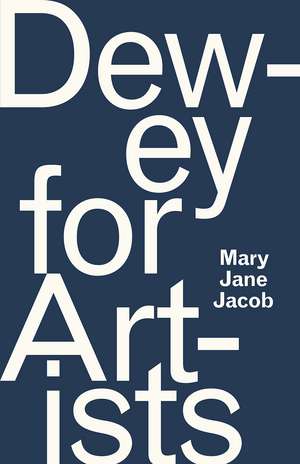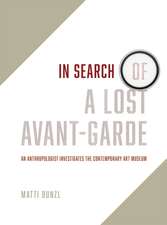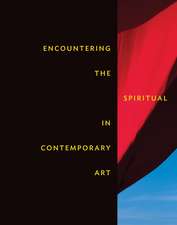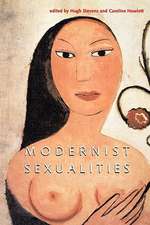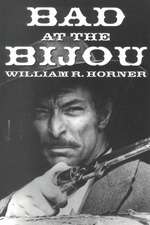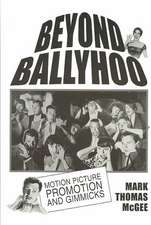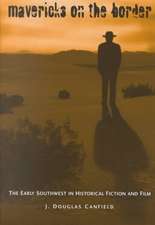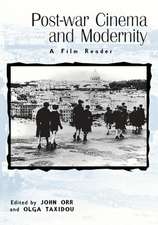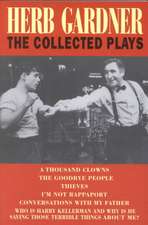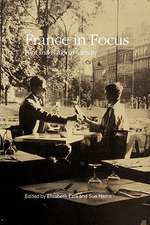Dewey for Artists
Autor Mary Jane Jacoben Limba Engleză Paperback – 10 dec 2018
John Dewey is known as a pragmatic philosopher and progressive architect of American educational reform, but some of his most important contributions came in his thinking about art.
Dewey argued that there is strong social value to be found in art, and it is artists who often most challenge our preconceived notions. Dewey for Artists shows us how Dewey advocated for an “art of democracy.” Identifying the audience as co-creator of a work of art by virtue of their experience, he made space for public participation. Moreover, he believed that societies only become—and remain—truly democratic if its citizens embrace democracy itself as a creative act, and in this he advocated for the social participation of artists.
Throughout the book, Mary Jane Jacob draws on the experiences of contemporary artists who have modeled Dewey’s principles within their practices. We see how their work springs from deeply held values. We see, too, how carefully considered curatorial practice can address the manifold ways in which aesthetic experience happens and, thus, enable viewers to find greater meaning and purpose. And it is this potential of art for self and social realization, Jacob helps us understand, that further ensures Dewey’s legacy—and the culture we live in.
Dewey argued that there is strong social value to be found in art, and it is artists who often most challenge our preconceived notions. Dewey for Artists shows us how Dewey advocated for an “art of democracy.” Identifying the audience as co-creator of a work of art by virtue of their experience, he made space for public participation. Moreover, he believed that societies only become—and remain—truly democratic if its citizens embrace democracy itself as a creative act, and in this he advocated for the social participation of artists.
Throughout the book, Mary Jane Jacob draws on the experiences of contemporary artists who have modeled Dewey’s principles within their practices. We see how their work springs from deeply held values. We see, too, how carefully considered curatorial practice can address the manifold ways in which aesthetic experience happens and, thus, enable viewers to find greater meaning and purpose. And it is this potential of art for self and social realization, Jacob helps us understand, that further ensures Dewey’s legacy—and the culture we live in.
Preț: 211.77 lei
Nou
Puncte Express: 318
Preț estimativ în valută:
40.53€ • 44.04$ • 34.07£
40.53€ • 44.04$ • 34.07£
Carte tipărită la comandă
Livrare economică 19 aprilie-03 mai
Preluare comenzi: 021 569.72.76
Specificații
ISBN-13: 9780226580449
ISBN-10: 022658044X
Pagini: 176
Ilustrații: 24 halftones
Dimensiuni: 140 x 216 x 15 mm
Greutate: 0.2 kg
Ediția:First Edition
Editura: University of Chicago Press
Colecția University of Chicago Press
ISBN-10: 022658044X
Pagini: 176
Ilustrații: 24 halftones
Dimensiuni: 140 x 216 x 15 mm
Greutate: 0.2 kg
Ediția:First Edition
Editura: University of Chicago Press
Colecția University of Chicago Press
Notă biografică
Mary Jane Jacob is professor and director of the Institute for Curatorial Research and Practice at the School of the Art Institute of Chicago.
Cuprins
Introduction
Part One The Artist’s Process
1 Making
2 Experiencing
3 Practice
Part Two The Social Value of Art
4 Democracy
5 Participation
6 Communication
Notes
Index
Part One The Artist’s Process
1 Making
2 Experiencing
3 Practice
Part Two The Social Value of Art
4 Democracy
5 Participation
6 Communication
Notes
Index
Recenzii
"Dewey's progressive politics and their relationship to art, more specifically how they illustrate social practice art as an aesthetic experience, are the focus of Chicago-based curator Mary Jane Jacob's new book, Dewey for Artists. Written in an easy-to-digest manner, the book establishes Jacob among a small group of artists and art professionals—notably Tom Finkelpearl and Greg Sholette—who have long looked to Dewey as a theoretical foothold. . . . Jacob interprets Dewey's ideas through a myriad of experiential and participatory artworks by international artists with whom she has interacted or whose work she has curated including Tania Bruguera's activist workshop space for immigrants in Queens, the poetic installations of wafting fabric by Ann Hamilton, Thomas Hirschhorn's Bronx housing estate construction dedicated to Gramsci, a film by Jeon Joonho of his father remembering a particularly beautiful sunset, and the Norwegian forest planted to print books for Katie Paterson's Future Library project.. . . . [Dewey's] belief in living life as an artful practice and focus on fostering rational debate and creativity as a means to achieve a more just society remains a worthy lesson for artists and citizens alike."
"Following a discussion of Dewey’s conception of the creative process, Jacob builds her case with chapters on aesthetic experience, practice, democracy, participation, and communication, with each chapter logically building on the previous. . . . She shows the possibilities aesthetic experience and engagement have for democratic practice and participation by reconnecting, in Deweyian fashion, the creative process to the everyday lived experiences of contested social and political spaces. This illuminating work will be of great interest to students, artists, and scholars alike."
“The John Dewey that emerges from Mary Jane Jacob’s introspective and affirmative study speaks directly to the artist of the twenty-first century by insisting on the poetry of everyday experience, the necessity of making as a process of worldly understanding, and the universal significance of art as an essential form of human knowledge. Move over, Joseph Beuys, there is a century-old theorist of socially engaged art to contend with who—thanks to Jacob’s compelling and accessible writing, as well as her deft use of specific contemporary art works as models of Dewey’s progressive-era ideas—springs forth to surprise and challenge us today.”
"Any philosopher interested in the relation of theory to practice will find this text an interesting case study on how philosophy is relevant to the arts, even if that relevance is limited and specific.
For those unfamiliar with social practice, this book is an excellent introduction to many of the most important pieces and artists working in this mode. . . . Philosophers interested in how philosophy interacts with thought outside the discipline should read this book, which is surely required reading for anyone interested in social practice art. Dewey for Artists enlivens aspects of Dewey’s writing for a significant group of contemporary artists working today. It doesn’t speak to all artists working today, but instead of suffering from this sin of omission, it gains strength in its specificity, and, in doing so, Jacob models a practical way for art and philosophy to come together."
For those unfamiliar with social practice, this book is an excellent introduction to many of the most important pieces and artists working in this mode. . . . Philosophers interested in how philosophy interacts with thought outside the discipline should read this book, which is surely required reading for anyone interested in social practice art. Dewey for Artists enlivens aspects of Dewey’s writing for a significant group of contemporary artists working today. It doesn’t speak to all artists working today, but instead of suffering from this sin of omission, it gains strength in its specificity, and, in doing so, Jacob models a practical way for art and philosophy to come together."
"Jacob draws on Dewey to argue emphatically that art is not set apart for spectators. A work of art, a creative act of making, becomes fully itself only in engagement with the world through the experience of those who interact with it. . . . For Dewey, art gives us agency in our lives and the shared lives of our communities. Art arises from the poetry of everyday life, and conversely, making our lives every day in itself is an art and a practice. . . . close the book thinking, 'Mary Jane Jacob would have been a transformative faculty member at Black Mountain College.'"
"Not only does this book explain Dewey's philosophy at a more understandable level than his publications, such as "Art as Experience," but also it aims to speak to the public in that this book connects art to essential aspects of human beings."
"The social activities of John Dewey and the contemporary artists discussed by Jacob show us that art can influence society actively. As the author explains, these art actions might be radical, but they also have value as human responses; what is important is to not ignore what is going on around us. . . .This book speaks not just to art. It is about something more essential: how a human being can live life well."
"...Jacob models a practical way for art and philosophy to come together."
